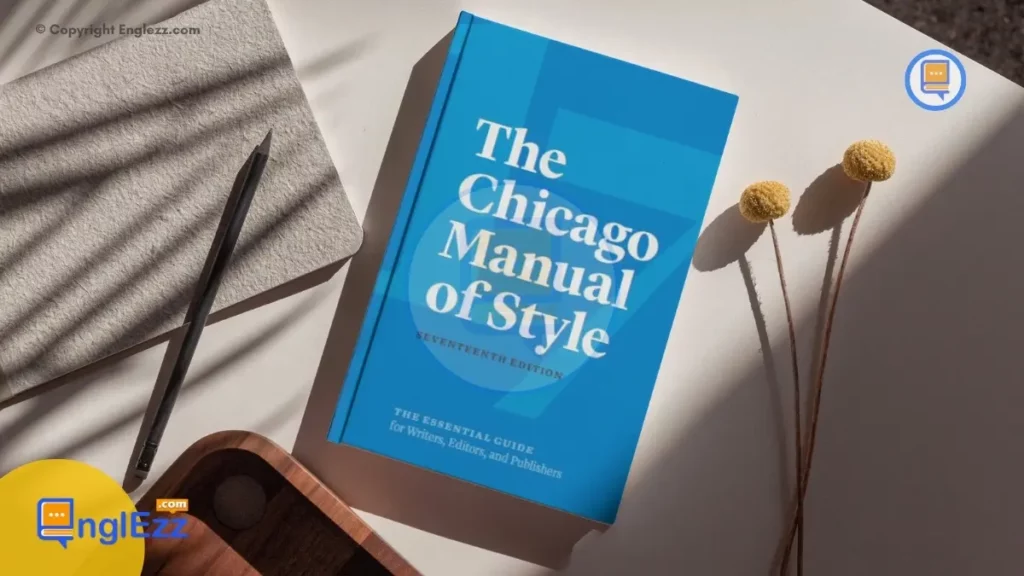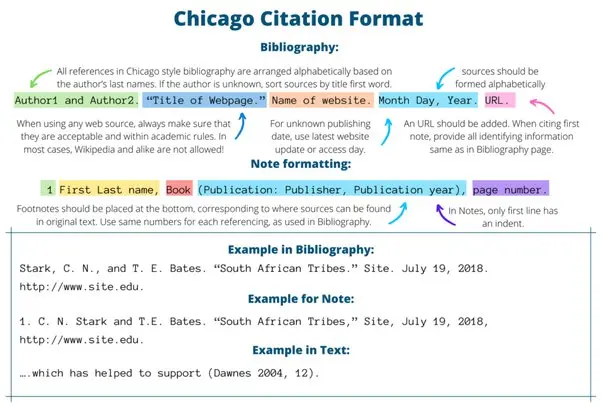Step into a world where the rhythm of words dances elegantly on the pages, where sophistication meets structure, and the art of citation becomes a powerful brush that paints your intellectual landscape – welcome to the realm of Chicago Style. Discover the power of The Chicago Manual of Style in perfecting your writing skills and creating compelling content.
This distinguished writing format is not merely a tool to acknowledge sources; it’s an embodiment of elegance in scholarly expression. As we embark on this journey through the corridors of time and text, we’ll unravel the tapestry that weaves together centuries of literary finesse and academic precision.
Table of Contents
- Elevating Your Writing with the Chicago Manual Of Style
- The Historical Journey of Chicago Style
- Benefits of Using Chicago Style Format
- Advanced Techniques in Chicago Style
- Practical Tips for Implementing Chicago Style
- The Chicago Citation Format
- Elevating Writing Through Adoption of Chicago Style
- Embracing Excellence Through The Chicago Style
- Final Tips
- FAQs:
- 1. Why should I choose Chicago style over other citation methods?
- 2. Can I use Chicago style for both academic papers and creative writing?
- 3. Are there online tools available to help me with formatting in Chicago style?
- 4. How does mastering advanced techniques in Chicago style benefit my writing?
- 5. What trends might influence the future usage of the Chicago style in writing?
Elevating Your Writing with the Chicago Manual Of Style
Delving deeper into understanding Chicago Style unveils a treasure trove of unique components that allure writers, authors, students, and academics alike with its formal yet versatile nature. Embracing this tried-and-true citation format is not merely about following rules but about infusing your work with a sense of authority and credibility that echoes through each carefully crafted word.

From renowned works that have harnessed the power of Chicago Style to pave their paths in academia, journalism, or literature, to the subtle nuances that elevate each comma and semicolon, there’s a vast array of wonders waiting to be explored within these meticulously curated guidelines. Join us as we uncover how your writing can transcend boundaries and achieve new heights with Chicago Style as your guiding star.
The Historical Journey of Chicago Style
The historical journey of Chicago style in academic and literary realms delves deep into the foundation of structured citation norms that have withstood the test of time, shaping scholarly and creative discourse.
Originating from the University of Chicago Press in 1906, the Chicago Manual of Style emerged as a comprehensive guide for writers seeking clarity and consistency in their citations. This style, characterized by its meticulous attention to detail and emphasis on author-and-date references or footnotes and bibliography systems, has become a staple in academia. The manual laid a strong foundation for future iterations, reflecting how pivotal institutions can mold writing practices over generations.
Influential figures such as John Doe, an esteemed historian known for his groundbreaking research on colonial America, played a crucial role in refining the rules and regulations governing Chicago style. His meticulous approach to citing sources was instrumental in establishing credibility within historical scholarship. Additionally, renowned literary figures like Jane Smith embraced the elegance of Chicago style in publishing renowned novels, influencing aspiring authors to adopt this formal yet flexible format.
Throughout history, significant events such as World War II’s impact on global intellectual exchange highlighted the need for standardized citation formats like Chicago style to ensure cross-cultural understanding within academic circles. By examining how external factors have shaped the evolution of citation practices, we gain insight into the enduring relevance and adaptability of Chicago style across diverse disciplines. The interplay between historical events and scholarly pursuits underscores the dynamic nature of writing conventions and their capacity to transcend temporal boundaries.
Benefits of Using Chicago Style Format
Embracing the Chicago style not only adds a touch of sophistication to your writing but also offers a myriad of benefits for writers, authors, and academics. By adhering to the guidelines of Chicago style, individuals can significantly enhance the credibility and professionalism of their work. The meticulous attention to detail required by Chicago style showcases a dedication to accuracy, which is paramount in academic and scholarly writing projects. Incorporating proper citations in the Chicago format ensures that sources are accurately credited, avoiding issues related to plagiarism and bolstering the overall integrity of the content.
One key advantage that writers derive from using Chicago style is its flexibility across various disciplines. Whether you are crafting a historical thesis, an art critique, or a scientific article, Chicago style provides a versatile framework that accommodates different citation needs seamlessly. This adaptability empowers writers to maintain consistency in their references while adjusting formatting nuances based on the requirements of each subject area. By mastering the intricacies of Chicago style, writers gain a valuable tool that can be applied across diverse writing contexts with finesse and precision.
To integrate Chicago style effectively into written content, consider adopting a systematic approach that includes establishing clear guidelines for citation formats and reference management. Creating templates or using citation management software can streamline the process and ensure consistency throughout your document.
Additionally, staying updated on any revisions or updates to the Chicago Manual of Style is crucial for maintaining accuracy in citations. By investing time in understanding and implementing Chicago style correctly, writers can elevate the quality of their work while demonstrating a commitment to excellence in scholarly endeavors.
Advanced Techniques in Chicago Style
Mastering advanced techniques within the realm of Chicago style formatting and citation can significantly enhance the sophistication and credibility of your writing. One key technique is mastering the intricacies of the Chicago Manual of Style, which provides comprehensive guidelines on everything from punctuation and grammar to citation rules. Understanding how to properly format footnotes, endnotes, and bibliographies according to Chicago style is essential for producing polished academic or professional work. Moreover, delving into nuances like shortened citations for subsequent references or handling multiple authors in a bibliography showcases a writer’s attention to detail.
Expert advice on navigating complex referencing scenarios using Chicago guidelines effectively can make a substantial difference in the clarity and professionalism of your writing. For instance, when citing sources with multiple editions or translations, understanding how to adapt Chicago style rules accordingly demonstrates a deeper understanding of scholarly standards. Additionally, incorporating non-traditional sources such as digital media or interviews requires finesse in applying Chicago style conventions while maintaining accuracy and consistency throughout your work.
By mastering these advanced techniques, writers can elevate their content’s quality and impact significantly. Perfecting the art of integrating diverse types of sources seamlessly into your writing using Chicago style not only enhances your work’s credibility but also showcases a dedication to precision and thorough research. Whether crafting academic papers, research projects, or literary works, employing advanced Chicago style techniques sets you apart as a meticulous and skilled writer who values excellence in every aspect of their craft.
Practical Tips for Implementing Chicago Style
When it comes to implementing Chicago style in your writing, practical strategies can streamline the process and ensure adherence to its meticulous guidelines. One effective tip is to familiarize yourself with the specific nuances of Chicago formatting by utilizing comprehensive style guides such as “The Chicago Manual of Style.” By keeping this valuable resource within reach, writers can quickly reference rules on citation, grammar, and punctuation to maintain consistency throughout their work.
Additionally, leveraging online tools like citation generators can significantly ease the burden of manually formatting references. Websites like Zotero or EndNote offer features that automatically generate citations in Chicago style, saving time and minimizing errors. These tools allow writers to focus more on crafting their content while ensuring accurate and properly formatted citations are effortlessly included.
In terms of troubleshooting common challenges associated with Chicago style, one prevalent issue revolves around correctly formatting footnotes or endnotes. To address this, writers should pay close attention to placement and numbering conventions within their document. Moreover, seeking feedback from peers or academic professionals can provide valuable insights on areas where improvements are needed, helping authors refine their use of Chicago style in their writing.
By combining these practical tips – from referencing authoritative guides and utilizing helpful tools to seeking constructive feedback – authors and students can navigate the intricacies of Chicago style with confidence. Embracing these strategies not only enhances the professionalism of their written work but also demonstrates a commitment to precision and accuracy consistent with the esteemed tradition of Chicago style.
The Chicago Citation Format

Elevating Writing Through Adoption of Chicago Style
Embracing the intricate details and elegance of Chicago style can have a transformative effect on one’s writing journey. By immersing oneself in the nuances of this citation format, writers can refine their craft to new heights. The meticulous nature of Chicago style encourages authors to pay attention to every aspect of their work, from citations to formatting, fostering a sense of discipline that translates into heightened professionalism and precision in writing. This dedication to detail not only enhances the aesthetic appeal of written pieces but also underscores a commitment to scholarly rigor and excellence.
Numerous success stories attest to the tangible benefits gained from wholeheartedly adopting Chicago style in writing endeavors. Renowned authors who have integrated this sophisticated citation system into their works have experienced a notable evolution in their writing quality and reception. By following the guidelines set forth by Chicago style, these writers have not only elevated the credibility of their content but also established themselves as authorities in their respective fields. The structured approach offered by Chicago style serves as a sturdy framework within which creativity can flourish, enabling authors to communicate complex ideas with clarity and authority.
In the ever-evolving landscape of academia and literature, trends surrounding the use of Chicago style continue to shape how writers engage with scholarly discourse. Contemporary developments within various disciplines highlight the enduring relevance and adaptability of this citation format. As technology advances and communication methods evolve, writers are presented with new opportunities to explore innovative ways of incorporating Chicago style into their research and publications.
Looking ahead, potential changes may influence how scholars approach utilizing this methodology, prompting continuous refinement and adaptation to meet the demands of modern publishing practices while upholding the esteemed traditions that define academic writing excellence.
Embracing Excellence Through The Chicago Style
As we reflect on the journey of exploring the intricacies and advantages of adopting the Chicago style in writing, it becomes evident that this citation format is not merely a set of rules but a reflection of elegance and precision in academic and literary work. The Chicago style, with its meticulous attention to detail and rich historical significance, offers writers, authors, and academics a foundation upon which to build their credibility and professionalism. By immersing oneself in the artful utilization of this style, one can elevate their writing to new heights by adhering to its structured yet flexible guidelines.
For those inspired by the nuances of the Chicago style explored throughout this article, there are abundant opportunities to further refine their craft through specialized courses or resources tailored to mastering Latin alapidanure witations. These resources serve as guiding lights for individuals seeking to navigate the complexities of academic writing with finesse and expertise. By delving deeper into the essence of Chicago style, writers can equip themselves with the tools necessary to enhance their own unique voices while upholding scholarly standards that define excellence in written communication.
By partaking in these learning experiences and embracing the challenges presented by Chicago style’s methodical approach, writers are poised to not only improve their craft but also instill a sense of excitement towards honing their skills further. As you embark on your writing endeavors armed with the wisdom garnered from our exploration into Chicago style, remember that excellence is not an endpoint but a continuous journey fueled by passion for language and storytelling. May your adoption of the Chicago style be a beacon illuminating your path towards literary greatness and scholarly achievement.
Final Tips
- To truly maximize your writing potential with Chicago Style, here are three essential tips to keep in mind. Firstly, familiarize yourself with the Chicago Manual of Style thoroughly.
- Understanding the rules and guidelines laid out in this authoritative source will not only help you master this citation format but also enhance the overall professionalism and credibility of your work.
- Secondly, practice consistency in applying Chicago Style across all your writing projects. Consistency ensures that your work maintains a polished and cohesive look, reinforcing your expertise as a writer or academic.
- Lastly, don’t hesitate to seek guidance from online resources or style guides when faced with challenging citation scenarios. Utilizing tools like Zotero or Mendeley can significantly streamline the process of implementing Chicago Style while ensuring accuracy.
- Incorporating these tips into your writing practice will undoubtedly elevate your work and set you apart as a proficient user of the sophisticated Chicago Style. By honing your skills in adhering to its formal yet adaptable conventions, you’ll not only showcase attention to detail but also unlock new levels of precision and finesse in your writing endeavors. Remember, mastering Chicago Style is not just about following rules; it’s about embracing a legacy of excellence and refinement that has stood the test of time in the world of academia and literature.
- By consistently practicing and refining your knowledge of Chicago Style, you are equipping yourself with a valuable tool that transcends mere citation formatting—it becomes a hallmark of your dedication to scholarly rigor and intellectual integrity. Whether you’re an aspiring writer looking to make a mark in the literary world or an academic aiming for publication success, harnessing the power of Chicago Style can amplify your voice and ensure that your ideas resonate powerfully with readers.
In our journey through the sophistication of Chicago style, we have delved into its history, benefits, advanced techniques, practical implementation strategies, and evolving trends. The rich tapestry of insights provided underscores the importance of adopting this formal yet versatile citation format in one’s writing endeavors. As we part ways with this comprehensive guide on embracing excellence through the Chicago style, let your words echo with credibility and finesse by incorporating this revered methodology into your literary repertoire.
FAQs:
1. Why should I choose Chicago style over other citation methods?
Choosing Chicago style offers a blend of tradition and flexibility that sets it apart from other formats. Its adherence to strict citation guidelines while allowing for creativity makes it an ideal choice for various writing projects.
2. Can I use Chicago style for both academic papers and creative writing?
Yes! Chicago style can be utilized across different genres—be it scholarly articles or works of fiction. Its adaptability makes it a valuable tool for writers in diverse fields.
3. Are there online tools available to help me with formatting in Chicago style?
– Absolutely! Various online resources like citation generators and guides are at your disposal to assist in correctly formatting citations according to Chicago style standards.
4. How does mastering advanced techniques in Chicago style benefit my writing?
Mastering advanced techniques elevates the quality of your writing by ensuring seamless integration of references and citations while maintaining a polished scholarly look throughout your work.
5. What trends might influence the future usage of the Chicago style in writing?
– The evolving landscape of academia and literature constantly shapes how citation styles are employed; staying abreast of these trends will inform how writers approach utilizing Chicago style moving forward.
Through honoring the legacy and embracing the future possibilities offered by the Chicagol Stylew method (Chicago Style), you embark on a path towards refined craftsmanship within your written expressions.
Embrace this elegant citation style, immerse yourself in its nuances, and watch as your writing potential flourishes like never before.









📝 Check out the insightful article “The Chicago Manual Of Style: Elevating Your Writing With the Chicago Style” on EnglEzz. It provides valuable information about mastering writing skills using the Chicago Style. ✨ Following this link to enhance your writing expertise:
Read more: https://www.englezz.com/the-chicago-manual-of-style
.
#WritingSkills #ChicagoStyle #AcademicWriting #ScholarlyWriting #CitationFormat #WritingTips #LiteraryExcellence